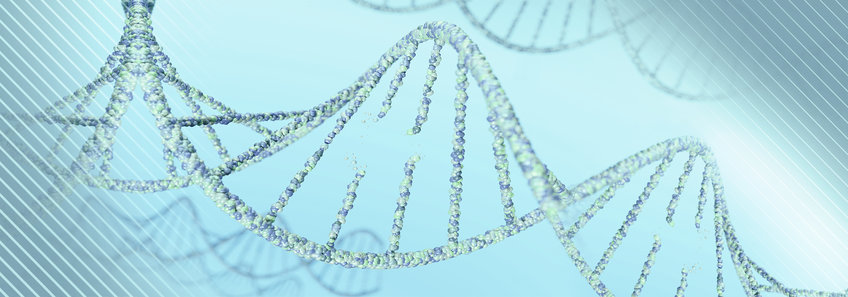
Max Planck Research Group Panier
Genome Instability and Ageing
Cells are constantly exposed to influences that cause DNA damage, both from inside the cell and from the environment. To counteract this, cells have sophisticated signaling pathways at their disposal that detect such DNA lesions and facilitate their timely repair. We are investigating these cellular DNA damage response pathways to understand how they ensure genome stability and how their dysfunction contributes to human ageing and disease.
The stability of genetic material is of fundamental importance for cellular homeostasis and organism viability. Yet, cells are always exposed to environmental and endogenous genotoxic agents that threaten DNA integrity. To protect their genomic stability, cells mount a complex network of DNA damage response pathways that activate cell cycle checkpoints, coordinate DNA repair, regulate gene expression and, if necessary, induce apoptosis. Indeed, DNA damage signalling and repair is a powerful barrier to tumourigenesis, and defects in these pathways promote cell proliferation and genomic instability in pre-malignant lesions. Critically, genomic instability is also a driver of many aspects of cellular ageing and is linked to the onset of age-associated diseases such as neurodegeneration and cancer.
The overarching question of our research programme is how cells sense, signal and repair DNA damage to safeguard their genetic information. In particular, we seek to understand how RNA and RNA-binding proteins coordinate the chromatin-based responses to bulky DNA lesions and to DNA double-strand breaks. In addition, we investigate how the DNA damage responses intersect with the cellular pathways that maintain telomeric integrity.
Selected Publications
SLX4IP Antagonizes Promiscuous BLM Activity during ALT Maintenance
Panier, S., Maric, M., Hewitt, G., Mason-Osann, E., Gali, H., Dai, A., Labadorf, A., Guervilly, J. H., Ruis, P., Segura-Bayona, S., Belan, O., Marzec, P., Gaillard, P. H. L., Flynn, R. L., Boulton, S. J.
(2019) Mol Cell, 76, 1, 27-43 e11
Double-strand break repair: 53BP1 comes into focus
Panier, S., Boulton, S. J.
(2014) Nat Rev Mol Cell Biol, 15, 1, 7-18
Tandem protein interaction modules organize the ubiquitin-dependent response to DNA double-strand breaks
Panier, S., Ichijima, Y., Fradet-Turcotte, A., Leung, C. C., Kaustov, L., Arrowsmith, C. H., Durocher, D.
(2012) Mol Cell, 47, 3, 383-95
The MMS22L-TONSL complex mediates recovery from replication stress and homologous recombination
O'Donnell, L., Panier, S., Wildenhain, J., Tkach, J. M., Al-Hakim, A., Landry, M. C., Escribano-Diaz, C., Szilard, R. K., Young, J. T., Munro, M., Canny, M. D., Kolas, N. K., Zhang, W., Harding, S. M., Ylanko, J., Mendez, M., Mullin, M., Sun, T., Habermann, B., Datti, A., Bristow, R. G., Gingras, A. C., Tyers, M. D., Brown, G. W., Durocher, D.
(2010) Mol Cell, 40, 4, 619-31
The RIDDLE syndrome protein mediates a ubiquitin-dependent signaling cascade at sites of DNA damage
Stewart, G. S., Panier, S., Townsend, K., Al-Hakim, A. K., Kolas, N. K., Miller, E. S., Nakada, S., Ylanko, J., Olivarius, S., Mendez, M., Oldreive, C., Wildenhain, J., Tagliaferro, A., Pelletier, L., Taubenheim, N., Durandy, A., Byrd, P. J., Stankovic, T., Taylor, A. M., Durocher, D.
(2009) Cell, 136, 3, 420-34
Highlights |
|
|---|---|
| 2023 |
DFG Research Unit FOR5504DFG Research Unit FOR5504
German Research Foundation 2023-2026 |
| 2023 |
FEBS Excellence Award
Federation of European Biochemical Societies 2023-2025 |
| 2013 |
EMBO Postdoctoral Fellowship
EMBO 2013-2014 |
| 2013 |
Vivash PhD Thesis Award
University of Toronto |
| 2008 |
PhD Fellowship
Boehringer Ingelheim Fonds 2008-2010 |